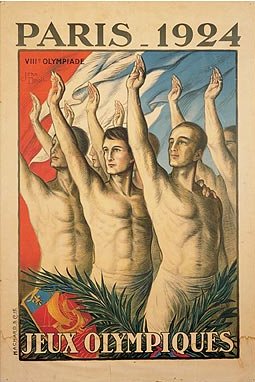When Rohullah Nikpai of Afghanistan won his bronze medal in taekwondo, it was a truly historic moment. Why? Because it was the first Olympic medal ever won by his country. Some of the most poignant moments at the Olympics happen during the medal ceremonies. Seeing a country’s flag unfurl in celebration of its athletes’ achievements, is a  wonderful, wonderful thing.
wonderful, wonderful thing.
Of course, not everyone is happy about these patriotic celebrations.
Much has been made of the evils of nationalism. Erich Fromm, the humanist / social psychologist, once said, “Nationalism is our form of incest, is our idolatry, is our insanity. ‘Patriotism’ is its cult.” Likewise, many secularists and political liberals see nationalism as the driving force behind war, secession and genocide, the cause of many of the world’s ills. It’s why many believe we should move toward a “global community”, a one world government, where “citizens of the world” unite under one banner, not hundreds.
So in many ways, the Olympics themselves grate against some of our most sacred ideologies.
Perhaps the most obvious is multiculturalism. Multiculturalism celebrates racial, ethnic, cultural diversity. But to appreciate different cultures — food, religion, customs, history — requires the amplification of national distinctives; it implies nationalism. So multiculturalism, which is one of the planks of secular ideologists, creates a dilemma for the opponents of nationalism. Either we celebrate the fact that Afghanistan won its first bronze medal, or we don’t. If we respect this athlete’s achievements, and all it means for his country, then we concede to a certain degree of nationalistic pride.
Me? I have no problem seeing the Chinese, Brazilian, Argentinean, or American flag at the top rung. This diversity, competition and camaraderie is what makes the Olympics, and the human race, so special. However, it also means some nations will be better than others. And, in the end, this may be the real reason people oppose nationalism.















You’re right. There is a dilemma between multiculturalism and nationalism. How can we value all cultures (and nations), if people don’t represent distinct cultures?
A funny story – On Monday’s Dennis Prager show, he played a clip of an interview with Kobe Bryant. Kobe was saying how honored he was to represent the US in the Olympics and how great our country is. In fact, Kobe said we live in the greatest country. The interviewer was surprised to hear Kobe speak so favorably of the US, since this is not the trend within our athletes and famous people.
Dennis’ response: “I love you Kobe! I want to kiss you!”
Yay! I was actually angrily confronted on a blog for speaking out about this country being the “greatest” country in the world.. I was shocked.
You’re right, Mike and Chris. How can cultures be significant if we become “all the same” in unification?
I think people are afraid of nationalism becoming racism. But I also think that most people know the difference – or should. Does that make sense?
*runs away*
Sidenote: And yes, i agree. Just thought to add that.
Kaci, I think you’re right about people’s fears of nationalism. There’s no doubt that it has extremes, has fueled many evils, and is the source of some of the world’s problems. But like anything, loving your country, upholding its values, and pursuing its objectives, need not mean quashing or looking down our nose at other nations. The problem is, it’s far easier to condemn nationalism than to find that balance.